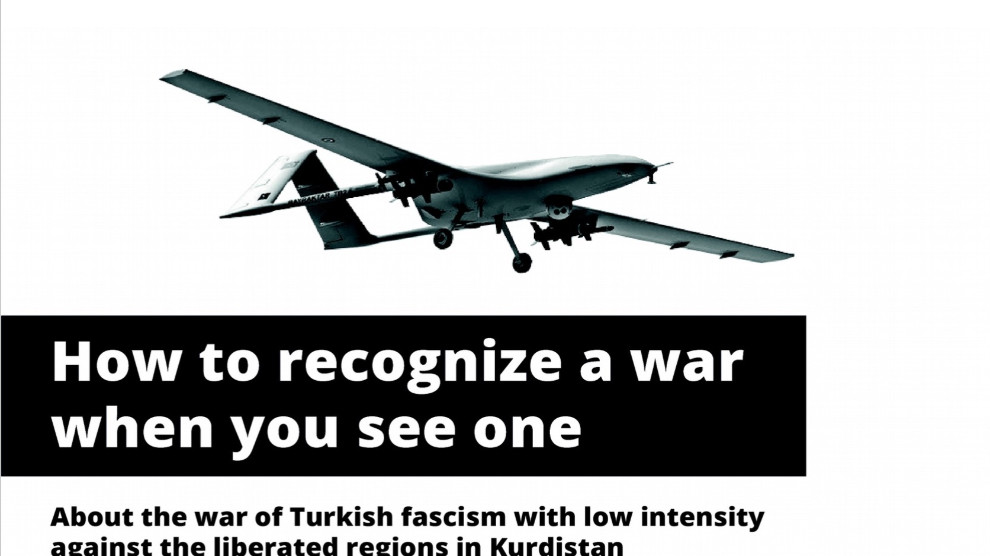Since the "ceasefire" of 17 October 2019 and the end of the classical military attack of the Turkish forces in the war against Rojava, the war against the Kurds in Turkey, Syria and Iraq has never stopped.
It took on a new form combining three forms of war theorised by strategists: Low intensity warfare, hybrid warfare and compound warfare. Classical military actions were limited and supplemented by a variety of hostile actions. These include targeted attacks, crop burning, targeted bombing by drones, attacks by proxies, provocation of mass exodus, etc. In six weeks of "ceasefire" after 17 October 2019, the Turkish Armed Forces carried out 143 attacks on rural areas in Rojava, 42 drone bombings, 147 medium bombs and artillery bombs. They raided 88 places, killed hundreds of people and displaced 64,000 people.
RiseUp4Rojava and International Red Help have compiled an important report which analyses the hostile actions carried out during several months of the "ceasefire" at the end of 2019 by Turkey and its proxies against Rojava. This analysis is important because these are not individual cases but components of a well thought-through and planned strategy. This does not only concern Rojava but, as we will see, also other liberated regions of Kurdistan (like the Qandîl Mountains in Iraq) or spaces where the liberation movement enables the liberation and self- organisation of the people (the Mexmûr refugee camp, the region of the Yezidis of Şengal in Iraq, etc.). This form of warfare can continue and is a deadly threat to the liberated regions of Kurdistan. The solidarity movement with Rojava must understand this threat and learn to respond to it.
At the end of the report the authors write: “The solidarity movement with Rojava must not lose sight of the possibility of a new large-scale offensive against Rojava - like the one against Afrin. We do not know how long the current phase, which began at the end of 2019, will last. What we do know is that the low-intensity war that is currently being waged by Turkey against all the liberated areas of Kurdistan (Rojava, Qandîl, etc.) is a strong, continuous and varied aggression. In order to offer resistance, it takes a lot of effort, means, intelligence and determination. International solidarity can and must be a decisive support for this resistance, provided that it is strong, continuous and diverse.”
The report can be downloaded here.













